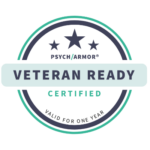Lucemyra is one of the drugs that have been FDA approved for assisting with opioid withdrawal. However, it is not approved as a treatment for opioid use disorder (OUD). Instead, it is part of a broader management plan that may include other medications, psychological support, and other evidence-based therapies. But is Lycremya addictive? Is there a potential for abuse with this new non-opioid prescription medicine? Read on to learn that and more about medically assisted detoxification and treatment for opioid addiction.
The symptoms of opioid withdrawal can be so severe that the fear of detoxing prevents some people from getting help with their opioid use disorder. Fortunately, medically supervised detox programs can help relieve the discomforts associated with detoxing and keep patients safe.
Why Is Medical Supervision Recommended for Opioid Withdrawal?
Opioids include several prescription pain medications that originate from opium-producing poppies. Codeine, morphine, and OxyContin are some of the most well-known prescription opiates. Heroin and fentanyl are also in that drug category.
The widespread use of prescription opioids has contributed to an opioid epidemic that currently claims approximately 17,000 lives per year in the United States. Having an opioid use disorder has nothing to do with whether the drugs were prescribed by a doctor or not. Substance use disorders are defined as problematic patterns of misuse of a substance, no matter where that substance comes from.
People can become addicted to prescription opioids through misuse. Opioids can change brain function in a relatively short time. They are effective pain killers because they block the brain from feeling pain and induce calm and happiness. The longer someone uses opioids, the more they interfere with the brain’s natural abilities to relieve pain and produce the “feel good” hormones. This can create a dangerous cycle of using larger and more frequent doses to get the wanted effects. More frequent drug use leads to addiction and physical dependence.
Medically supervised withdrawal, also known as medication-assisted therapy (MAT), helps to ensure patients remain safe as they detox. Medical supervision reduces the health risks of detoxing and provides 24/7 care to keep patients accountable throughout the process.
Symptoms of Opioid Withdrawal
The goals of detoxing are to rid the body of its physical dependence on drugs, address other medical or mental health problems, and help patients prevent relapse. Relapse is the most dangerous side effect of withdrawal and puts patients at risk for overdose death. After detox or even partial detox, the body cannot metabolize the same amounts of opioids used before the withdrawal. If a person tries to ingest the same dosage they had become tolerant to, it can cause an accidental overdose.
Withdrawal symptoms can be mild or severe, even life-threatening. Factors that affect withdrawal from opioids include:
- Age of patient
- General health
- Severity and duration of drug use
- Co-occurring disorders
Individuals who have gone through the detox process once or more in the past may also be at risk for experiencing more severe symptoms. Medically supervised detox is recommended for most patients, especially those who have previously undergone withdrawal and those who have a history of severe withdrawal symptoms.
Opioid detox is more than just uncomfortable. The desire to relieve physical symptoms drives some people with OUD to continue drug use even when they want to seek recovery.
Symptoms of opioid withdrawal include the following:
- Body aches and pains
- Flu-like symptoms
- Shaking
- Excessive sweating
- Headache
- Irritability, mood swings
- Depression
- Anxiety
- Abdominal cramping
- Fever
- Nausea and vomiting
- High blood pressure
- Lung infections
- Asphyxiation
- Suicidal thought or attempts
During supervised detox, patients are closely monitored by experienced medical staff and receive medications to help ease the severity of symptoms and keep patients safe. Many programs also provide counseling and other therapies during the withdrawal process to assist recovery from opioid addiction.
Medications Used for Opiate Withdrawal
Most commonly used medicines to manage withdrawal symptoms include buprenorphine, naloxone, methadone, naltrexone, and clonidine. The medication commonly known as Suboxone is a combination of buprenorphine and naloxone. Buprenorphine and methadone are both effective for helping long-term opioid users reduce their dependence and ease symptoms. Unfortunately, both of these medications also carry a risk for addiction. Buprenorphine is an opioid partial agonist that produces euphoria, though not at the same levels as a full opioid. Methadone is classified as an opioid.
Naltrexone blocks the pleasurable effects of opioids, reducing the temptation to use the drug. Clonidine helps reduce the flu-like symptoms that often accompany withdrawal. Other medications to control withdrawal side effects may be prescribed as needed, including medications for mental health disorders that may not have been properly diagnosed or treated until detox.
Lucemyra is the brand name of the medication known as lofexidine, which is used to counteract the effects of opioids. The FDA approved Lucemyra in 2018. Lucemyra/lofexidine works by blocking an adrenaline-like hormone called norepinephrine, which exacerbates withdrawal symptoms. Neither Lucemyra nor lofexidine is a controlled substance.
Is Lucemyra the New Cure for Opioid Addiction
Makers of Lucemyra clearly state that the medication does not entirely prevent opioid withdrawal symptoms, nor is it a treatment for OUD. Lucemyra may be prescribed as part of your overall opioid withdrawal treatment program. It is most effective for easing symptoms of OUD in people who have quit opioid use suddenly (cold turkey) instead of tapering off with the help of buprenorphine or methadone.
How Is Lucemyra Taken?
Lucemyra is a tablet taken three or four times a day, with approximately six hours between doses. The drug should be used immediately after you stop taking opioids and can be taken with or without food. The typical usage time is around 14 days. At that point, the effects of opioids will have naturally subsided. Even without medical assistance, withdrawal symptoms taper off around 14 days after the last dose of opioids. Doctors reduce the Lucemyra dosage gradually as withdrawal progresses.
Recovery patients may wonder if Lucemyra lofexidine is addictive or if there is a potential for abuse with Lucemyra. The answer to both questions is no. However, there are risks involved with using this medication.
Side Effects
Some of the side effects of Lucemyra are serious and require immediate medical attention. Severe side effects are rare but include the following:
- Chest pain or chest discomfort
- Dizziness, feeling faint
- Chills
- Cold sweats
- Unusual fatigue
- Irregular or slow heart rate
- Confusion
Anyone experiencing the above side effects should contact their prescribing doctor immediately or seek emergency help. Do not take further doses of Lucemyra until you have consulted with a physician.
There are also side effects that typically resolve on their own during treatment. Your health care provider can offer suggestions on how to reduce these symptoms if they are bothersome.
When using Lucemyra, you may experience a variety of mild side effects, including:
- Dizziness
- Dry mouth
- Sleepiness/trouble sleeping
- Feeling calm and relaxed
- Unusual drowsiness
- Temporary hearing loss
- Buzzing or ringing in the ears
- You may not be a good candidate for lofexidine if you have ever had:
- Heart problems
- Kidney disease
- Liver disease
- Stroke
- Low blood pressure
- Electrolyte imbalance
- Low blood pressure
Your doctor should take a complete medical history and evaluation before prescribing Lucemyra or any other medication for opioid withdrawal symptoms.
Lucemyra/Lofexidine Warnings
Lucemyra is considered generally safe for most people. However, all medications pose risks, and those risks should be taken seriously.
There is limited data available about the safe use of lofexidine for pregnant women or planning to become pregnant. Women who are nursing should speak to their doctors about potential risks.
Patients with underlying mental illness should not take lofexidine. Let your doctor know if you are taking any medications to treat psychosis.
Lucemyra may interact with other medications such as sedatives, high blood pressure medications, or antidepressants. Be sure to discuss all your medications with your doctor before taking Lucemyra.
Do not use alcohol while taking Lucemyra.
Lofexidine can only be obtained with a prescription and should be taken exactly as prescribed.
Treatments for Opioid Addiction
If you or someone you care about is struggling with opioid addiction, don’t give up hope. Effective treatments for OUD include options such as cognitive-behavioral therapy, residential and outpatient treatment, peer support, alternative therapies, treatment for co-occurring disorders, and medication-assisted therapies.
Medications like Suboxone or Lucemyra can be highly effective in assisting with the process of withdrawal. Once the physical dependence on opioids has been resolved, patients will be better positioned to do the emotional and psychological work required for long-term recovery.
Finding the combination of therapies that will assist your recovery may take effort, but the alternative is more difficult to face. Opiate addiction is a road of self-destruction. Approximately 190 people died from overdose every day in the U.S. during 2020, and health experts warn that number may continue to rise for the next several years.
You don’t have to face addiction alone, and you don’t have to suffer the risks and discomforts of opioid withdrawal without help. Contact us today for more information about medically assisted detox for opioids and other substances.






